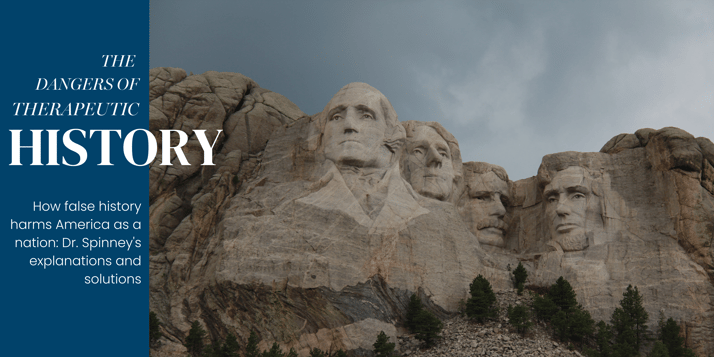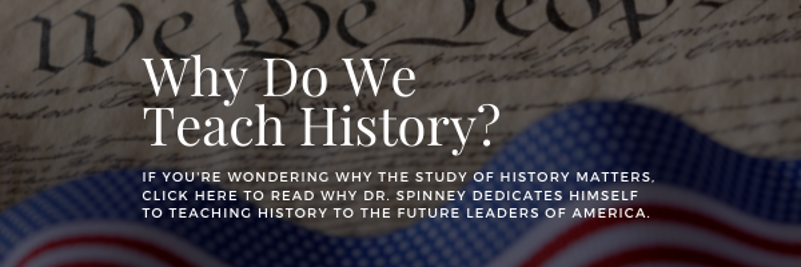
How does false history harm America as a nation? Dr. Robert Spinney, Professor of History, explains how, and offers the solutions.
In his book 1984, George Orwell wrote, “The most effective way to destroy people is to deny and obliterate their own understanding of their history.” Rewriting, erasing, or denying history is a long, troubled tradition everywhere in the world. Winston Churchill famously remarked that history has a funny way of being written by the victors. Even in a world with an abundance of information and technology, hard truths are often exchanged for soft lies. As Christians, we know that truth exists whether or not it is widely accepted, and it is often found in the faithful, accurate accounts of those who came before us.
In America, history matters as contesting visions of the American narrative play out in the national discussion—and as the NYT’s 1619 Project takes a foothold in people’s minds. Americans have proven themselves to be deeply invested in how the portrait of history is being painted. But when emotions boil over, the truth of history becomes obscured by slander, violence, and more often than not, tragic ignorance of our own American history.
Dr. Robert Spinney, Professor of History at PHC, said that accurate knowledge of American history is declining among Americans. “I frequently hear people opine that the current state of black-white relations is worse than it has ever been. Many seem to think that racism is at an all-time high. I am stunned that Americans have forgotten how bad race relations were in the 1950s before the modern black Civil Rights Movement,” he said. “. . . but history makes it clear that America’s story over the past seventy years is one of sustained and significant progress, not regress. With regard to race, we as a nation today are truer to the ideals of the Declaration of Independence and the Constitution of the United States than we were in 1950 or even 1990.”
And therein lies the problem: while Americans remain in the dark about their own progress and its subsequent positive effects, some would prey on the people’s weak knowledge of American history for shock value. Dr. Spinney continues to shed light on the matter:
This process of using history as a “therapeutic device" distorts the view of the past in order to serve one’s own present needs and to achieve individual ends on the basis of historical pretense.
‘History as therapy’ is not new: both conservatives and liberals know how to do this, as do both the powerful and the weak. Sometimes these distortions are harmless, like when we repeat exaggerated tales of how our great-great-great grandfather killed two bears with a dull knife on the Kentucky frontier. Therapeutic history is harmful, however, when it is used to legitimize a proposed course of action.
So how do we combat distorting history in exchange for our own narrative? The remedy, according to Dr. Spinney, is to tell the truth.
Always tell the truest story possible.
“Always tell a true story. This is my prime directive as a Christian historian: tell the truest story possible, a warts-and-all story that includes inconvenient facts and incorporates God’s infallible truth where appropriate.”
At Patrick Henry College, unwavering biblical worldview is the rule, not the exception. Context for interpreting history is found in the study of Scripture—on the moral and virtuous absolute truths that are the bedrock of any Christian perspective. In order to identify the truth from the lies, wrestle with the ramifications of the moral failings of our ancestors, and rightly place virtue over what C.S. Lewis called “emotional propaganda," PHC approaches the study of history through a clear lens of foundational biblical ethics.
----




